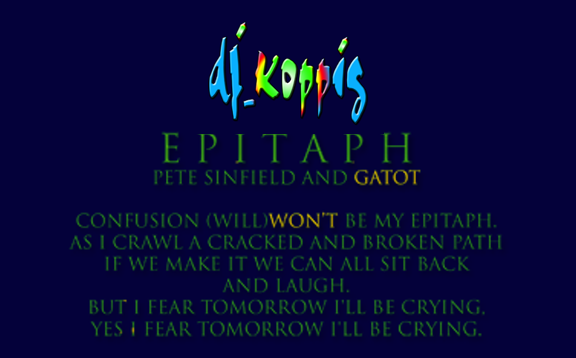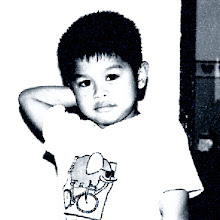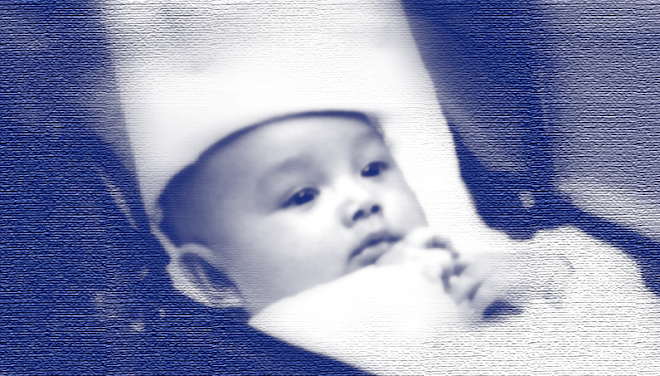 Studio Album, released in 1994
Studio Album, released in 1994I have a music community with limited number of members (not more than 10 people) who communicates using SMS Blast technology registered under my colleague prog rock friend Rizal B. Prasetijo (Ijal). Ijal used to review album or music using this media and blast the message to all members. Ijal is also an audiophile in which he can only appreciate music when the sound is produced by analog equipment – with vinyl as main format. Since last week Ijal has been traveling to London for his profession as investment banker (he is Managing Director of JP Morgan Securities). During his trip, he also visits record store to find any REFUGEE (Patrick Moraz’ band prior to Yes) vinyl if available; because I shared to the members of SMS Blast that REFUGEE is a masterpiece of prog rock. But he could not find it. So he grabs Patrick Moraz CDs “Future Memories I & II” and “Windows of Time”). The below review was written by Ijal during his leisure time at hotel room, using his mobile phone, blasted to all members. It is posted here with his permission.
GATOT
(SPECIAL COLLABORATOR: Honorary Collaborator Progarchive.com)
A Review by Rizal B. Prasetijo:
In contrast to the Patrick Moraz's Future Memories analysed yesterday, the Moraz's Windows of Time offers a sharp different concept. While both albums were recorded live, in the Future Memories, Moraz dealt with a dozen of keyboards and attempted to explore the technical boundaries of his rigs without putting forward a clear line of thinking. In the Windows of Time, Moraz only used a single Steinway & Sons model D, concert grand piano and attempted to articulate his understanding on the concept of time (the constraint that he found when he made this album) in his musical language.
What makes the Windows of Time is rather unique for me is, in addition to write compositions, he also (I think) spent a considerable time in writing the reasoning behind the creation of his compositions in his album sleeve. "Is time just a concept or really a constant? And if so, to what, to whom, to where, to when?... While listening to this CD, you may feel that you are spending only a few minutes, or may be an hour, depending your emotional response..." Mr. Moraz wrote. Simply put, the listener must first read the write up on the sleeve as the prologue, ushering him to the decrpty Mr. Moraz's musical message in this album.
The album is initiated by the percussion-like sound for 53", but if you listen properly, it was actually Mr. Moraz stood up and hit the wood panel of its Steinway grand piano, then bow, put his half body inside the grand piano, and hit the Steinway piano strings (famous for the brightness of its sound). He did these actions couple of time.
The album itself consists of the combination of complicated classical music structure (with fast note, beat, and sharp different tonalities), combined with some jazzy, easy listening, kind of light late afternoon composition, describing the struggle and difficulties in making this album, and how relief and satisfied Mr. Moraz was at the end when he was able to complete in a given certain windows of time. Please, look at the pyramid in the album sleeve, to decrpty Mr. Moraz's hidden musical message in the album sleeve, while you are listening the album track by track. Otherwise you are getting lost.
That said, the journey to decrpty his hidden message in this album by no means is as exciting or as joyful as when I attempted to interpret and find the link between Moraz and Yes' song: the Gates of Delirium (Relayer) with Ivan Tolstoy's War and Peace. The latter was clearly far superior and articulate. But, I want to say that amidst the rising of commercialism, Mr. Moraz is still dare to stand up and offer this kind of alternative product. His album isn't easy to be digested (and commercially, is unlikely to be successful), but the excitement listening to Windows of Time, in my view, lies on the decrpytion process. While your ears capture note by note, beat by beat, tempo by tempo, your brain will be forced to link these musical riddles to what you have previously read in the album sleeve. That's what really stimulates my sixth sense!
Track Listings
"Archetypes"
1. Invocation (7:10)
a) Aural Contact I
b) Sacrifices
2. Soul Eternal (5:20)
3. Initiation (4:08)
a) Aural Contact II
4. Lost Way (4:11)
"Rite Of Passage"
5. Kaaru (3:48)
6. Oral Contact: Shout (0:05)
7. Talisman (6:19)
8. Gaia Tea "Reflections" (5:43)
9. Festival (5:53)
10. "Reflections" Too (1:53)
11. The Best Years Of Our Lives (3:49)
"Sanctuary"
12. a) Isle Of View (4:29)
13. b) Liberation (5:58)
14. c) Ascend (1:07)
Total Time: 59:43
Line-up/Musicians
- Patrick Moraz / piano









1 comment:
www.badongo.com/file/8635827
Post a Comment